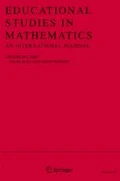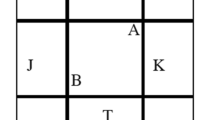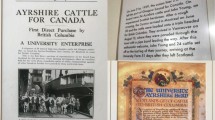Abstract
In the context of mathematics teachers’ training, the concept of dépaysement épistémologique (epistemological disorientation) emphasizes that the contact with the history of mathematics, particularly with the use of original sources, pushes aside commonplace students’ perspectives about the discipline and offers them a critical look towards mathematics’s historical, social and cultural aspects. Conceptually supported by the theory of objectivation, an emergent sociocultural theory in mathematics education, this study describes the dépaysement épistémologique lived by future mathematics teachers engaged in the reading of historical texts. A phenomenological approach allowed us to clarify various meanings associated with students’ lived experiences and a dialogical perspective provides a way to get these meanings in tension through a polyphonic narration. Our reading of this polyphonic narration suggests that dépaysement épistémologique associated with the reading of historical texts encouraged empathy from students towards the authors and their future learners, opening up the possibility for a nonviolent mathematics education.


Similar content being viewed by others
Notes
Based on a doctoral research project (Guillemette, 2015).
References
Arcavi, A., & Isoda, M. (2007). Learning to listen: From historical sources to classroom practice. Educational Studies in Mathematics, 66(1), 111–129.
Bagni, G., Furinghetti, F., & Spagnolo, F. (2004). History and epistemology in mathematics education. In L. Cannizzato, A. Pesci, & O. Robutti (Eds.), Italian research in mathematics education 2000–2003 (pp. 170–192). Milan: Ghisetti & Corvi.
Bakhtin, M. (1977). (Published by the name of V. N. Volochinov). Le marxisme et la philosophie du langage [Marxism and the philosophy of language]. Paris: Minuit. (Original work published 1929)
Bakhtin, M. (1982). L’œuvre de François Rabelais et la culture populaire au Moyen-Âge et sous la Renaissance [Rabelais and his world]. Paris: Gallimard. (Original work published 1970)
Bakhtin, M. (1986). Speech genres and other late essays. Austin: University of Texas Press.
Bakhtin, M. (1997). Esthétique et théorie du roman [Questions of literature and aesthetics]. Paris: Gallimard. (Original work published 1978)
Bakhtin, M. (1998). La poétique de Dostoïevski [Problems of Dostoevsky's poetics]. Paris: Seuil. (Original work published 1963)
Bakhtin, M. (2003). Pour une philosophie de l’acte [Toward a philosophy of the act]. Lausanne: L’Âge d'Homme. (Original work published 1986)
Ball, D. L. (1993). With an eye on the mathematical horizon: Dilemmas of teaching elementary school mathematics. The Elementary School Journal, 93(4), 373–397.
Barbin, E. (1997). Histoire et enseignement des mathématiques. Pourquoi? Comment? (History and teaching mathematics: Why? How?) Bulletin de l’Association mathématique du Québec, 37(1), 20–25.
Barbin, E. (2006). Apport de l’histoire des mathématiques et de l’histoire des sciences dans l'enseignement [History of mathematics and history of sciences’ contributions in the teaching]. Tréma, 26(1), 20–28.
Barbin, E. (2012). L’histoire des mathématiques dans la formation: une perspective historique (1975–2010) [History of mathematics in the teaching: A historical perspective (1975–2010)]. In J.-L. Dorier & S. Coutat (Eds.), Acte du congrès de l’EMF 2012 (pp. 546–554). Geneva: University of Geneva.
Derrida, J. (1979). L’écriture et la différence [Writing and difference]. Paris: Seuil.
Derrida, J. (1996). Le monologuisme de l’autre [Monolingualism of the other]. Paris: Galilée.
Deschamps, C. (1993). L’approche phénoménologique en recherche [Phenomenological approach in research]. Montreal: Guérin.
Freudenthal, H. (1983). The didactical phenomenology of mathematical structures. Dordrecht: Reidel.
Fried, M. N. (2007). Didactics and history of mathematics: Knowledge and self-knowledge. Educational Studies in Mathematics, 66(2), 203–223.
Fried, M. N. (2008). History of mathematics in mathematics education: A Saussurean perspective. The Montana Mathematics Enthusiast, 5(2), 185–198.
Furinghetti, F. (2007). Teacher education through the history of mathematics. Educational Studies in Mathematics, 66(2), 131–143.
Giorgi, A. (Ed.). (1975). Phenomenology and psychological research. Pittsburgh: Duquesne University Press.
Giorgi, A. (1989). One type of analysis of descriptive data: Procedures involved in following a scientific phenomenological method. Methods, 1(3), 39–61.
Guillemette, D. (2011). L’histoire dans l’enseignement des mathématiques: sur la méthodologie de recherche [History in mathematics’ teaching: On methodology]. Petit x, 86(1), 5–26.
Guillemette, D. (2015). L’histoire des mathématiques et la formation des enseignants du secondaire: sur l’expérience du dépaysement épistémologique des étudiants [History of mathematics and secondary school teachers’ education: On the lived experience of dépaysement épistémologique]. (Doctoral dissertation). Université du Québec à Montréal, Canada. Retrieved from http://www.archipel.uqam.ca/7164/1/D-2838.pdf.
Gulikers, I., & Blom, K. (2001). “A historical angle”: Survey of recent literature on the use and value of history in geometrical education. Educational Studies in Mathematics, 47(2), 223–258.
Jahnke, H. H. (1994). The historical dimension of mathematics understanding: Objectifying the subjective. In J. P. da Ponte & J. F. Matos (Eds.), Proceedings of PME-18 (Vol. 1, pp. 139–156). Lisbon: University of Lisbon.
Jahnke, H. N. (1996). Set and measure as an example of complementarity. In H. N. Jahnke, N. Knoche, & M. Otte (Eds.), History of mathematics and education: Ideas and experiences (pp. 173–193). Göttingen: Vandenhoeck und Ruprecht.
Jahnke, H. N., et al. (2000). The use of original sources in the mathematics classroom. In J. Fauvel & J. van Maanen (Eds.), History in mathematics education: The ICMI study (pp. 291–328). Dordrecht: Kluwer Academic Publishers.
Jankvist, U. T. (2009). A categorization of the “whys” and “hows” of using history in mathematics education. Educational Studies in Mathematics, 71(3), 235–261.
Kjeldsen, T. H. (2010). Does history has a significant role to play for the learning of mathematics? In E. Barbin, M. Kronfellner, & C. Tzanakis (Eds.), Proceedings of ESU 6 (pp. 51–61). Vienna: Holzhausen.
Kjeldsen, T. H. (2012). Uses of history for the learning of and about mathematics: Towards a theoretical framework for integrating history of mathematics in mathematics education. In S. Choi & S. Wang (Eds.), Proceedings of HPM 2012 (pp. 1–21). Daejeon, South Korea: HPM.
Levinas, E. (2010). Totalité et infini: essai sur l’extériorité [Totality and infinity: An essay on exteriority]. Paris: Librairie Générale Française. (Original work published 1971)
Levinas, E. (2011). Le temps et l’autre [Time and the other]. Paris: Presses Universitaires de France. (Original work published 1979)
Morris, P. (1994). The Bakhtin reader: Selected writings of Bakhtin, Medvedev, Voloshinov. London: Edward Arnold Publication.
Radford, L. (2008). The ethics of being and knowing: Towards a cultural theory of learning. In L. Radford, G. Schubring, & F. Seeger (Eds.), Semiotics in mathematics education: Epistemology, history, classroom and culture (pp. 215–234). Rotterdam: Sense Publishers.
Radford, L. (2011). Vers une théorie socioculturelle de l’enseignement-apprentissage: La théorie de l'Objectivation [Toward a sociocultural theory of teaching and learning: The theory of Objectivation]. Éléments, 1, 1–27.
Radford, L. (2012). Education and the illusions of emancipation. Educational Studies in Mathematics, 80(1), 101–118.
Radford, L., Furinghetti, F., & Katz, V. (2007). Introduction: The topos of meaning or the encounter between past and present. Educational Studies in Mathematics, 66(1), 107–110.
Sabo, K., & Nielsen, G. M. (1984). Critique dialogique et postmodernisme [Dialogism and postmodernism]. Études françaises, 20(1), 74–86.
Siu, M.-K. (2006). No, I don’t use history of mathematics in my class: Why? In F. Furinghetti, S. Kaijser, & C. Tzanakis (Eds.), Proceedings HPM 2004 & ESU 4 (Rev. ed., pp. 368–382). Uppsala: University of Uppsala.
Van Manen, M. (1990). Researching lived experience: Human science for an action sensitive pedagogy. London Canada: The althouse press.
Van Manen, M. (1994). “Doing” phenomenological research and writing: An introduction. Edmonton: University of Alberta.
Acknowledgments
We would like to acknowledge Mariama Mary Fall, Tasha Ausman and Richard Barwell for the revision of this text.
Author information
Authors and Affiliations
Corresponding author
Rights and permissions
About this article
Cite this article
Guillemette, D. History of mathematics in secondary school teachers’ training: towards a nonviolent mathematics education. Educ Stud Math 96, 349–365 (2017). https://doi.org/10.1007/s10649-017-9774-3
Published:
Issue Date:
DOI: https://doi.org/10.1007/s10649-017-9774-3




